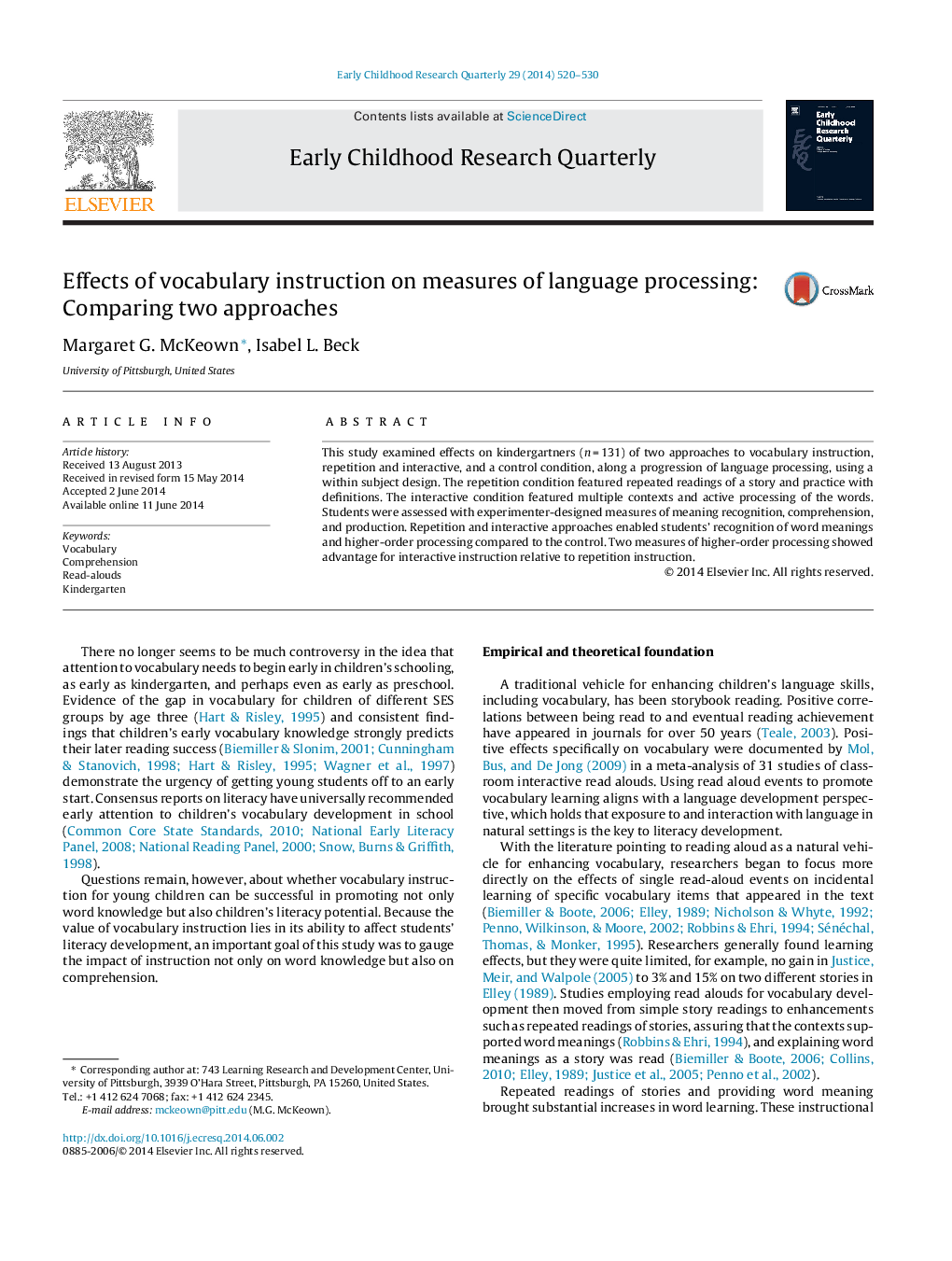| Article ID | Journal | Published Year | Pages | File Type |
|---|---|---|---|---|
| 353801 | Early Childhood Research Quarterly | 2014 | 11 Pages |
•We examined effects of vocabulary instruction on kindergartners.•Measures examined a progression from word knowledge to comprehension and production.•Interactive instruction showed an advantage for comprehension and production.•Interactive instruction led to children's ability to use the taught words.
This study examined effects on kindergartners (n = 131) of two approaches to vocabulary instruction, repetition and interactive, and a control condition, along a progression of language processing, using a within subject design. The repetition condition featured repeated readings of a story and practice with definitions. The interactive condition featured multiple contexts and active processing of the words. Students were assessed with experimenter-designed measures of meaning recognition, comprehension, and production. Repetition and interactive approaches enabled students’ recognition of word meanings and higher-order processing compared to the control. Two measures of higher-order processing showed advantage for interactive instruction relative to repetition instruction.
